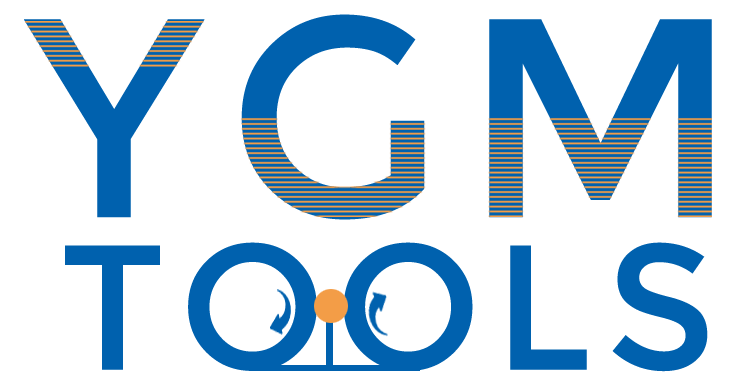
-
 Afrikaans
Afrikaans -
 Albanian
Albanian -
 Amharic
Amharic -
 Arabic
Arabic -
 Armenian
Armenian -
 Azerbaijani
Azerbaijani -
 Basque
Basque -
 Belarusian
Belarusian -
 Bengali
Bengali -
 Bosnian
Bosnian -
 Bulgarian
Bulgarian -
 Catalan
Catalan -
 Cebuano
Cebuano -
 Corsican
Corsican -
 Croatian
Croatian -
 Czech
Czech -
 Danish
Danish -
 Dutch
Dutch -
 English
English -
 Esperanto
Esperanto -
 Estonian
Estonian -
 Finnish
Finnish -
 French
French -
 Frisian
Frisian -
 Galician
Galician -
 Georgian
Georgian -
 German
German -
 Greek
Greek -
 Gujarati
Gujarati -
 Haitian Creole
Haitian Creole -
 hausa
hausa -
 hawaiian
hawaiian -
 Hebrew
Hebrew -
 Hindi
Hindi -
 Miao
Miao -
 Hungarian
Hungarian -
 Icelandic
Icelandic -
 igbo
igbo -
 Indonesian
Indonesian -
 irish
irish -
 Italian
Italian -
 Japanese
Japanese -
 Javanese
Javanese -
 Kannada
Kannada -
 kazakh
kazakh -
 Khmer
Khmer -
 Rwandese
Rwandese -
 Korean
Korean -
 Kurdish
Kurdish -
 Kyrgyz
Kyrgyz -
 Lao
Lao -
 Latin
Latin -
 Latvian
Latvian -
 Lithuanian
Lithuanian -
 Luxembourgish
Luxembourgish -
 Macedonian
Macedonian -
 Malgashi
Malgashi -
 Malay
Malay -
 Malayalam
Malayalam -
 Maltese
Maltese -
 Maori
Maori -
 Marathi
Marathi -
 Mongolian
Mongolian -
 Myanmar
Myanmar -
 Nepali
Nepali -
 Norwegian
Norwegian -
 Norwegian
Norwegian -
 Occitan
Occitan -
 Pashto
Pashto -
 Persian
Persian -
 Polish
Polish -
 Portuguese
Portuguese -
 Punjabi
Punjabi -
 Romanian
Romanian -
 Russian
Russian -
 Samoan
Samoan -
 Scottish Gaelic
Scottish Gaelic -
 Serbian
Serbian -
 Sesotho
Sesotho -
 Shona
Shona -
 Sindhi
Sindhi -
 Sinhala
Sinhala -
 Slovak
Slovak -
 Slovenian
Slovenian -
 Somali
Somali -
 Spanish
Spanish -
 Sundanese
Sundanese -
 Swahili
Swahili -
 Swedish
Swedish -
 Tagalog
Tagalog -
 Tajik
Tajik -
 Tamil
Tamil -
 Tatar
Tatar -
 Telugu
Telugu -
 Thai
Thai -
 Turkish
Turkish -
 Turkmen
Turkmen -
 Ukrainian
Ukrainian -
 Urdu
Urdu -
 Uighur
Uighur -
 Uzbek
Uzbek -
 Vietnamese
Vietnamese -
 Welsh
Welsh -
 Bantu
Bantu -
 Yiddish
Yiddish -
 Yoruba
Yoruba -
 Zulu
Zulu
OEM Roller Machines for Reed Threading and Rolling Applications
Understanding OEM Reed Thread Rolling Machines A Key Technology in Precision Manufacturing
In the ever-evolving landscape of manufacturing, precision and efficiency are paramount. One technology that epitomizes these qualities is the OEM Reed thread rolling machine. These machines have gained significant traction in various industries due to their ability to produce high-quality threaded components with remarkable speed and accuracy. This article delves into the workings, benefits, and applications of OEM Reed thread rolling machines, highlighting their importance in the world of precision manufacturing.
Thread rolling is a cold forming process that creates threads by displacing material rather than cutting it. This technique, employed by OEM Reed thread rolling machines, enhances the strength and durability of the threads produced. In contrast to traditional machining methods that can weaken the material, thread rolling maintains structural integrity, making it ideal for demanding applications where reliability is crucial.
Understanding OEM Reed Thread Rolling Machines A Key Technology in Precision Manufacturing
One of the significant advantages of using OEM Reed thread rolling machines is their efficiency. These machines can roll threads at high speeds, significantly reducing production time compared to conventional machining methods. This boost in productivity is especially vital in industries where time-to-market is a competitive factor. By embracing thread rolling technology, manufacturers can meet increasing demands while maintaining quality standards.
oem reed thread rolling machines

Furthermore, OEM Reed thread rolling machines are renowned for their precision. The rolling process ensures that the threads produced adhere to stringent specifications, providing consistent quality across batches. This level of precision is crucial in applications where even the slightest deviation can lead to product failure or safety concerns. As a result, businesses can enhance their reputation by delivering reliable products that meet or exceed customer expectations.
Another notable aspect of OEM Reed thread rolling machines is their environmental sustainability. The thread rolling process generates less waste compared to traditional machining methods, as it utilizes almost the entire raw material in the final product. Additionally, the absence of cutting fluids and minimal energy consumption during operation contribute to a lower environmental footprint. As industries increasingly prioritize sustainability, adopting such technologies can bolster a company’s commitment to eco-friendly practices.
Moreover, the introduction of advanced technologies, such as CNC (Computer Numerical Control) systems, has further enhanced the capabilities of OEM Reed thread rolling machines. CNC automation allows for precise control over the rolling process, enabling manufacturers to produce intricate thread patterns with ease. The integration of such technologies not only improves efficiency but also simplifies the transition between different production runs, accommodating diverse manufacturing needs.
In conclusion, OEM Reed thread rolling machines represent a formidable advancement in precision manufacturing. By combining efficiency, versatility, precision, and sustainability, these machines have become indispensable in producing high-quality threaded components across various industries. As manufacturers continue to seek innovative solutions to meet the demands of a competitive market, the role of OEM Reed thread rolling machines will undoubtedly grow, solidifying their place as a key technology in the future of manufacturing. Embracing this technology equips businesses with the tools they need to thrive in an increasingly sophisticated and quality-driven marketplace.
